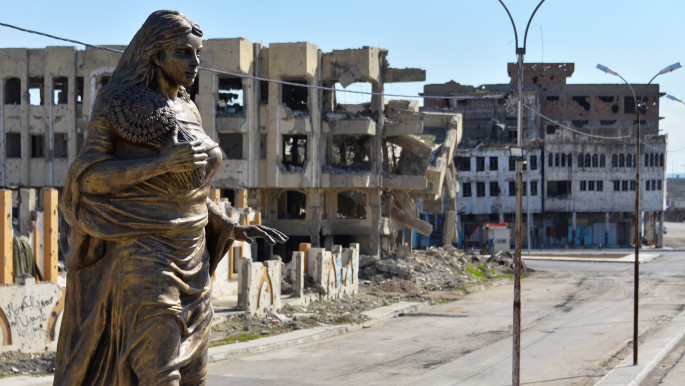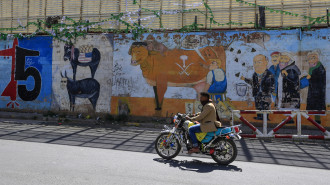The Iraqi nurse leading Mosul's battle against Covid-19
A nine-month long battle waged by Iraqi security forces and a US-led coalition to oust IS took a devastating toll on Mosul, with nine out of 13 hospitals in the city severely damaged. The city's healthcare system was all but destroyed and many hospitals still lack medical equipment.
In the aftermath, residents of Iraq's second largest city were virtually left alone to rebuild their ruined homes, receiving little support from either local or central government authorities. Amid these huge challenges, Maslawi youths like Al-Husseini are leading the charge.
As the pandemic swept across the city, she requested a transfer to work in Al-Shifa hospital in eastern Mosul, where the city's Covid-19 patients are being treated.
The hospital was once one of the main headquarters of IS during the extremist group's occupation of Mosul, with thousands of explosive ordnances removed from the complex following the city's recapture.
 |
Mosul's health system has yet to recover more than three years after the Islamic State's brutal rule |  |
"I am very proud to offer healthcare to those who tested positive with coronavirus," she told The New Arab. "However, what I am doing now brought me back to the dark times of IS rule, when I was providing first aid to Iraqi forces in battle zones".
After the city was recaptured, Al-Husseini and her colleagues volunteered to pull bodies from the rubble of houses, a harrowing job which saw them remove hundreds of corpses.
Equipped with gowns, masks, medical shoes and disinfectants by local health authorities, Al-Husseini says doctors and nurses now work around the clock to fight the deadly virus. "If I and others did not help my city, then who would fight the virus?" she said.
 |
|
| Read more: Still recovering from Islamic State rule, Mosul's women lead the fight against coronavirus |
Mosul's health authorities announced the first case of Covid-19 on 26 March and imposed strict measures to contain the virus. Iraq has officially registered more than 47,000 cases, with the death toll topping 2,000. The capital Baghdad has been worst hit by the crisis, with the daily number of cases across the country continuing to increase amid widespread flouting of lockdown measures.
"When I told my family about my decision to work in Al-Shifa hospital, at first they refused. My mother was afraid to lose me, as my sister was killed during the war against IS, but my husband supported me to go," Al-Husseini said.
Al-Shifa hospital, which was rebuilt by Médecins Sans Frontières (MSF) in 2019, has been identified by local health authorities as the main hospital for the referral of Covid-19 patients in the Nineveh Governorate.
 |
What I am doing now brought me back to the dark times of IS rule |  |
With a government curfew on vehicles announced, Al-Husseini, who does not drive, cycles around five kilometres a day to arrive at the hospital. A woman riding a bicycle is considered taboo in many parts of Iraq, especially in the conservative city of Mosul.
"It is a clear message I wanted to deliver to the community; that a woman should have no shame in riding a bicycle," she told The New Arab.
"At first, people looked at me in a strange way because they were not used to seeing a woman riding a bicycle. But days later, people encouraged me with supportive words, saying I was doing great work."
Other local youth organisations and NGOs have also been working tirelessly to fill the gap in government services to combat the coronavirus.
"We are working like bees in a hive in order to fight the deadly virus," head of Al-Shifa hospital Mohammed Nadhim Ismail said. "In Mosul, our patriotic duty and national response is in line with global efforts to combat the pandemic".
Azhar Al-Rubaie is a freelance journalist based in Iraq. His writing focuses on a variety of issues, including politics, health, society, wars, and human rights.
Follow him on Twitter: @AzherRubaie







 Follow the Middle East's top stories in English at The New Arab on Google News
Follow the Middle East's top stories in English at The New Arab on Google News


